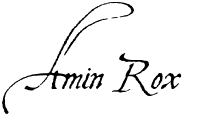Solat jemaah Jumaat saya hanya berlaku di Central Mosque kerana sering balik awal disebabkan kelas yang tamat pada awal waktu. Dan alhamdulillah Allah memilih saya menyampaikan teks khutbah pada hari tersebut. Pada mulanya agak keberatan namun selepas menimbangnya dengan baik, saya akur dan sanggup mengambil tugasan itu.
Gambaran Central Mosque
(diambil semasa Solat Hari Raya Aidil Adha baru-baru ini)
Bergambar bersama rakan-rakan setelah usai solat Aidil Adha
TopikDalam pemilihan topik, saya rasa agak was-was untuk menyampaikan isu yang berat. Tapi alhamdulillah terjumpa satu teks yang sangat menarik untuk dikhutbahkan. Dan bagi saya ianya satu isu yg sangat umum dan besar untuk sama-sama ditelitikan oleh umat Islam. Berikut ialah isi kandungan teks yang sampaikan. Saya telah memilih tema kemanusiaan bagi khutbah tersebut. Ikuti teks asalnya seperti berikut.
First Khutbah
My Dear Brothers,
Our khutbah today will briefly touch on the theme: mutual respect and appreciation of people from different cultures and ethnics. It’s a big topic and we only have about 20 minutes.
Muslims are probably more aware than most people of how dangerously polarized the world has become. High technology and global economics has broken down national barriers. The wide world has shrunken to a global village, but it has also thrown people into a crisis of identity. Now that we’re all in European countries, for example, some of us aren’t quite sure if we’re still British, or Scottish or English, and in which order of priority? What’s more important? What comes first? And, does it really matter? Politicians in shaky alliances are looking for easy support by stoking these deep rooted fears, targeting immigrants, Muslims and other people of colour. Racism and xenophobia often go hand in hand. People are hated just because they are different. Older Jewish people who remember Germany in the 1930s will know that the distance between hating others and throwing them into a holocaust of gas chambers is a very short road.
What does Islam have to say on the subject? I will take just two examples, one from the Holy Quran, and the other from the life of Prophet Muhammad, may Allah’s peace and blessings be on him.
There is a very beautiful verse in Sura Al Hujuraat, which sums up Islam’s view on multiculturalism in a poetic and succinct way. It says:
“O Mankind, We created you from a single (pair) of a male and a female and made you into nations and tribes, so that you may know (and respect) each other, not that you should despise one another. Truly the most honoured of you in the sight of Allah are those who are foremost in good deeds.”
(Quran 49:13).
Note the Quran does not say, O Muslims, or O Arabs, or O Pakistanis or O British people. It says, O Mankind, O Human beings!. It addresses us as a species, the human family. It reminds us that we have descended from common parents, Adam and Eve, the primordial human ancestors. Our differences of culture, race and language are superficial. They are there simply to let us wonder in sheer amazement at God’s infinite artistry and creativity. Our differences must be celebrated, enjoyed. They are not an excuse for Pride or arrogance. All over Europe and even here in Britain we face serious problems of violent xenophobia and racism, where differences are exploited to promote fear and hate. We Muslims have become the main targets of this destructive process.
Islam stresses our common humanity, and appeals to our higher instincts of love, truth and justice.
The Prophet Muhammad, may Allah’s peace and blessings be on him, was the living Quran. His life example illustrated how people of different backgrounds can live peacefully together. In the last days of his life, he delivered a sermon, his final sermon, in which he set out Islam’s own view of human rights. This is an extract from his sermon:
“O People, your life and property is a sacred trust. Remember that you will indeed appear before God and answer for your actions… “
“O people, your wives have rights over you and you have rights over them. Treat them well and be kind to them for they are your partners and helpers….”
“All mankind is from Adam and Eve, an Arab has no superiority over a non-Arab nor does a non-Arab have any superiority over an Arab. A white person has no superiority over a black person, nor does a black person have any superiority over a white person, except by God-consciousness and good actions…”
“Know that every Muslim is a brother and sister to every other Muslim . You are now one brotherhood, one family of believers. ..”
This sermon is Islam’s declaration of Human Rights, delivered in 7th Century Arabia. Nothing comparable was produced until the United Nations Declaration of Human rights in 1948…. over 1,300 years later!
We Muslims are very fortunate, to have such clear guidance from our primary sources, the Quran and the Prophetic Sunnah, on this crucial way in which people should regard human diversity.
Despite our many superficial differences, beneath the skin we are all basically the same. Did you know that if the whitest Caucasian patient lies desperately in need of a blood transfusion in hospital, his family, his friends and neighbours might be powerless to help him if they had the wrong blood type? Yet this very same white patient could be saved by the blood of the blackest African on the planet, if their blood types matched! Amazing! Our physical differences are only skin deep! We are more deeply and closely connected to one another than we think!
Imagine that you’re standing beside a flooded river. The strong current is sweeping down and you hear someone shouting for help, desperately struggling and reaching out to you. You have a rope and a lifebelt lying at your feet. What do you do? Do you first ask him whether he’s Muslim, Jewish, British, Christian, whether he’s a legal or illegal immigrant? For God’s sake, NO! You don’t ask questions. You just throw him a lifeline. You save a life! That could be you or one of your loved ones waiting to be saved! No time for silly questions, just throw the rope and save a life!
That’s really how the Holy Quran addresses its readers. It’s a lifeline to misguided humanity. On some matters it says, O Believers (Ya ay yuhal latheena aamanu!), but on really crucial matters, it addresses all people, all humankind, saying “Ya ay yuhan-naas,” or “Ya Bani Aadam!” O Mankind! O Children of Adam!
For example, in the opening verse of Sura An-Nisaa’, Allah says:
“Yaa ay yuhan-naasut-taqoo Rabbukumul lathee khalaqakum min nafseew waahidah…”
“O mankind! Show reverence towards your Guardian-Lord Who created you from a single person, created, of like nature, his mate and from the two of them scattered (like seeds) countless men and women;― Be conscious of Allah, through Whom ye demand your mutual (rights) and (show reverence towards) the wombs (that bore you): for surely, Allah ever watches over you.”
So, really, we should see the message of Islam as a kind of lifeline, a firm handhold for people to hold onto, who would otherwise be swept away by the powerful currents of distraction and heedlessness. Islam came to save human beings from themselves. Left without divine guidance, we are prone to self-indulgence, and ever conflicting, expanding areas of self-interest. Islam is not some cultural heirloom to be preserved in a library or museum. It is a gift from Allah, to be lived and share with everyone. Islam offers us a way of living beautifully, virtuously, serving others out of love and gratitude to the One who created us all.
_______________________________________________________________________________________
Second khutbah
My dear brothers,
It’s very important to make this clear distinction between what Islam teaches and what some Muslims do, that their religion forbids. Please don’t judge Islam by the worst things that Muslims do. In the same way we shouldn’t judge any faith by the misbehaviour of some of its followers.
We Muslims have a big challenge. We have to put our own cultural house in order. We have to get rid of the cultural baggage that undermines our faith and gives Islam a bad name. We have to treat our womenfolk with respect and we must honour all our obligations. Once we have unravelled the tangled web of our misguided tribal traditions from true Islam, we can help others to understand how Islam works through our own beautiful living example.
Many people in the West are attracted to Islam. Despite all the prejudice and Islamophobia, many curious, educated and articulate men and women are discovering, or rather, re-discovering Islam. Large numbers of new Muslims take Shahaadah every day, and over 70% of them are women! Imagine that, in spite of all the vicious propaganda that says Islam oppresses women, for every new brother that joins our family, there are 2 new sisters! Allahu Akbar! Allah is Great! There’s definitely some food for thought!
“When God’s help arrives and victory (is achieved), and when you see people entering God’s way of life in crowds, glorify your Lord and seek His forgiveness.”






2 comments:
Wow.
Too bad that khutbahs in Malaysia never talked about things like that.
Yup, agreed. Malaysians, the khutbah is like "wanna-sleep' imrpovement need to be made.
Post a Comment